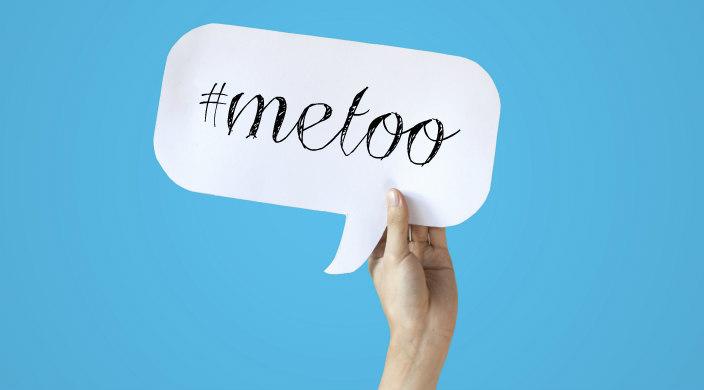Before I wade into the controversial topic of the #MeToo movement and sexual assault, here is a quick disclaimer: I’m a guy. I also was born white, born to the sex with which I identify, and born heterosexual. If you find yourself itching to disqualify what I’m about to say based on these qualifications, this article is for you.
I support the #MeToo movement and gender equality more generally. However, I have observed some rhetoric that I feel is misguided and will ultimately do a disservice to the progressive agenda. This article is not an exhaustive list of issues but a starting point for conversation.
First, there is a tendency to silence people. Liberals, especially young liberals, are often too quick to shut down someone’s opinion without actually responding to the points made. If a man is trying to express an opinion on sexual assault or gender equality, the merit of the claim should not be evaluated on the basis of his identity alone.
Disregarding an argument solely on the basis of the individual’s gender is a fallacy. Statements like “White men have been talking for centuries. It’s time for them to stop talking,” are non-sequiturs and not helpful. While we need a panoply of voices, with diverse identities being represented— and this has historically not been the case— the path toward equality is not zero-sum. In other words, men do not need to shut up for women to have a voice.
Next, there is a tendency to abandon nuance in favor of emotionally gratifying platitudes. These include statements like “victims deserve justice” or “all unwanted sexual contact is wrong,” when someone tries to talk about how not all sexual impropriety is the same. Of course all unwanted sexual contact is wrong, but we need to differentiate the levels of wrong.
There are gradients of sexual impropriety. An unwanted kiss is qualitatively different than rape, and you need not be a victim of either to argue as much. We can condemn both without conflating them. Aziz Ansari is not Harvey Weinstein.
We are capable of differentiating between levels of wrongness in almost all domains of life, yet seemingly incapable of this feat while talking about sexual assault. We condemn all crime without asserting that a robber is the same as a serial killer. Our failure to rationally delineate between what is and what is not sexual assault and harassment is going to cloud the debate and lead to faulty definitions.
For example, a recent YouGov poll revealed that nearly 25 percent of men aged 18 to 30 believed that simply asking a girl out for drinks was sexual harassment. We cannot lump all acts of sexual impropriety together under one banner and stop the conversation. There are borderline, nuanced, and complicated cases.
Third, we should not abandon due process for mob mentality. For most of history (and even now), it has been nearly impossible for a victim of sexual assault to seek justice. However, the solution is not to tilt the scales against the accused. The existence of an allegation should not render the accused automatically guilty. The accused deserves legal representation and the presumption of innocent until proven guilty. The accuser needs to be respected, listened to, and trusted. These differing prescriptions are not necessarily at odds.
The data on the rates of false rape reports vary, but estimates
suggest between two percent and 10 percent of reported rapes are false. Let’s split the difference and say 95 percent of reported rape is true. We should listen to the victims and pursue justice, but we should not let the five percent of false reports go uncorrected.
Some on the left might implicitly argue that the five percent of falsely accused are the price to pay for dismantling the patriarchy. However, this price need not be paid, or at the least, let us be explicitly clear: we are okay with condemning five innocent people to punish 95 guilty ones. This position does not seem consistent with how we deal with other crimes.
Finally, there is a prevalence of false dichotomies. It often plays out like this: person A says, “I think that we should allow the accused to have due process,” and person B responds, “So you’re against trusting the victim?” It’s not an either/or situation. Be suspicious if someone asserts otherwise.
If you disagree with what Elizabeth Dunn did at Middlebury, you are not simultaneously committed to being anti-victim. Conversely, you can support victims without supporting Elizabeth Dunn’s decision to disseminate a list of over 30 unsubstantiated accusations of various transgressions. We can criticize certain individuals in, or aspects of, a broad movement without being against the whole movement. A prohibition against doing so leads to unchallenged tenets and manufactured uniformity, which lead to ideological extremism.
I do not raise these points because I disagree with the aims of the #MeToo movement. I raise them because as a progressive, I wish to fashion a movement that does not needlessly divide nor intellectually blunder. It was telling that while writing this article, I was warned by friends to be careful. If simply articulating a respectful criticism is a cause for concern, something is wrong.
I was raised in a progressive household with three sisters, so I am already partial to the aims of the #MeToo movement and will remain as such. However, millions of Americans do not share these views. It is these Americans we will alienate if the movement silences men, fails to differentiate between levels of impropriety, shows no concern for due process, and relies upon false dichotomies.



